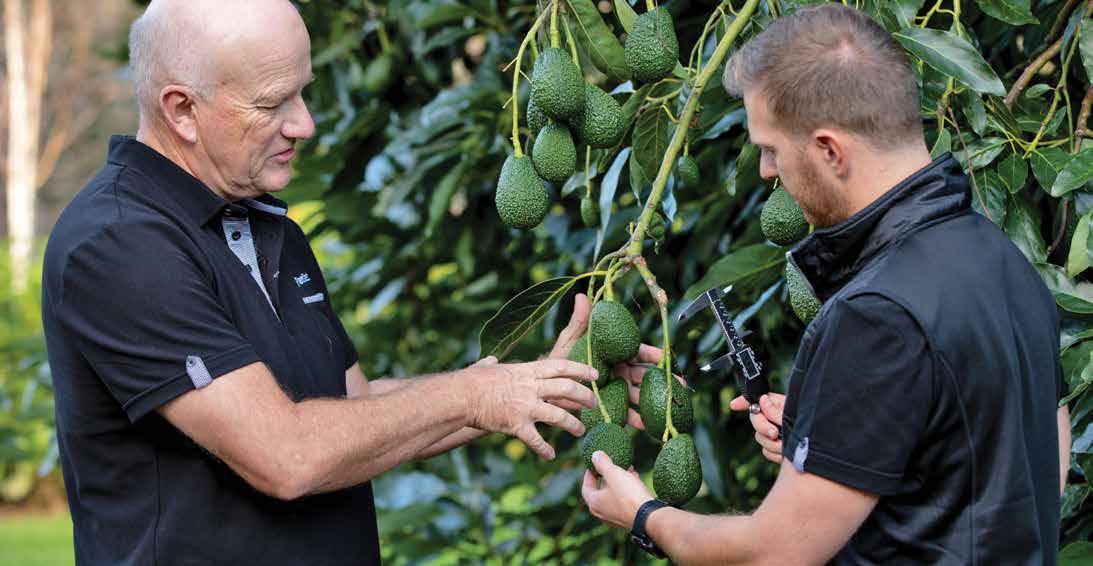
5 minute read
Institute innovations bring
PlantTech research director, Ian Yule, with research scientist, Istvan Hajdu, measuring avocado fruit
Institute innovations bring $46 million economic benefit
In the five years since it was established, independent research institute PlantTech has developed innovations for the horticulture industry which could result in a $46 million boost to the national economy.
Elaine Fisher
A report by the New Zealand Institute of Economic Research (NZIER) – The economic impact of PlantTech – found that PlantTech’s research and innovation could lead to the creation of 440 new jobs in the Bay of Plenty region over ten years.
PlantTech chief executive, Dr Mark Begbie, says the report shows that the institute is clearly delivering against challenges it was asked to address when it received $7.4 million in government funding as part of an initiative to establish regional research institutes throughout the country. “The independent report says we have delivered around a six times multiplier in economic impact on the government investment, which included our set-up costs and getting our team in place,” Mark says. “Our argument to government now is that we are showing exceptional performance with very strong indications that PlantTech has the ability to really make an impact in this space.”
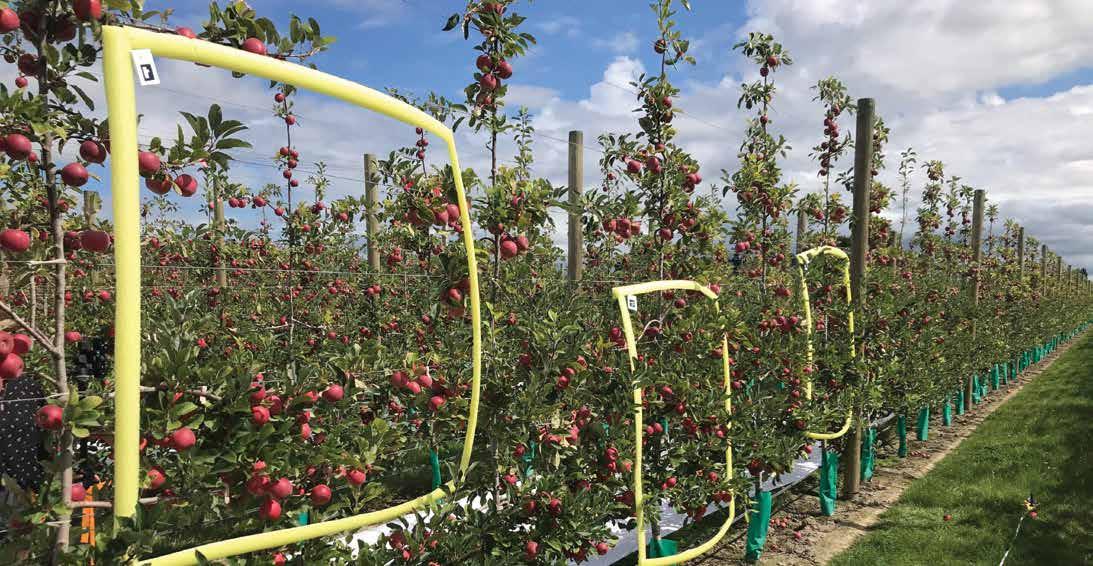
A PlantTech apple crop imagery trial involves counting and photographing thousands of apples in marked grids
The idea behind PlantTech was to create a research and technology organisation (RTO) based on delivering high-value crop systems using artificial intelligence (AI) and machine learning (ML). The organisation has now established credibility and acceptance within the science system. The NZIER report bases its estimations on benefits PlantTech has achieved in its brief period of operation. Its kiwifruit crop estimation is predicted to return one to two percent of total turnover to growers within the first three years. This is significant enough to use an economy-wide model to illustrate the impacts on a regional and national level, the report says. Another project with economic impact involved PlantTech working on improving soil quality by developing a testing approach that Eurofins (a science laboratory company) could apply to develop a faster, less expensive and lower waste commercial product through its network.
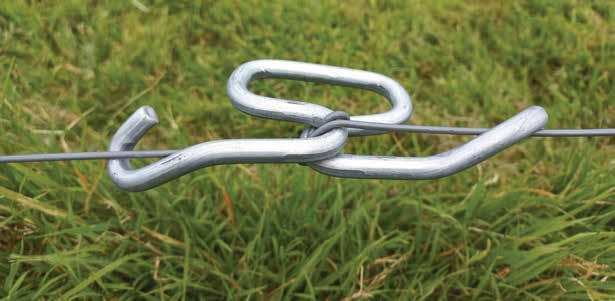
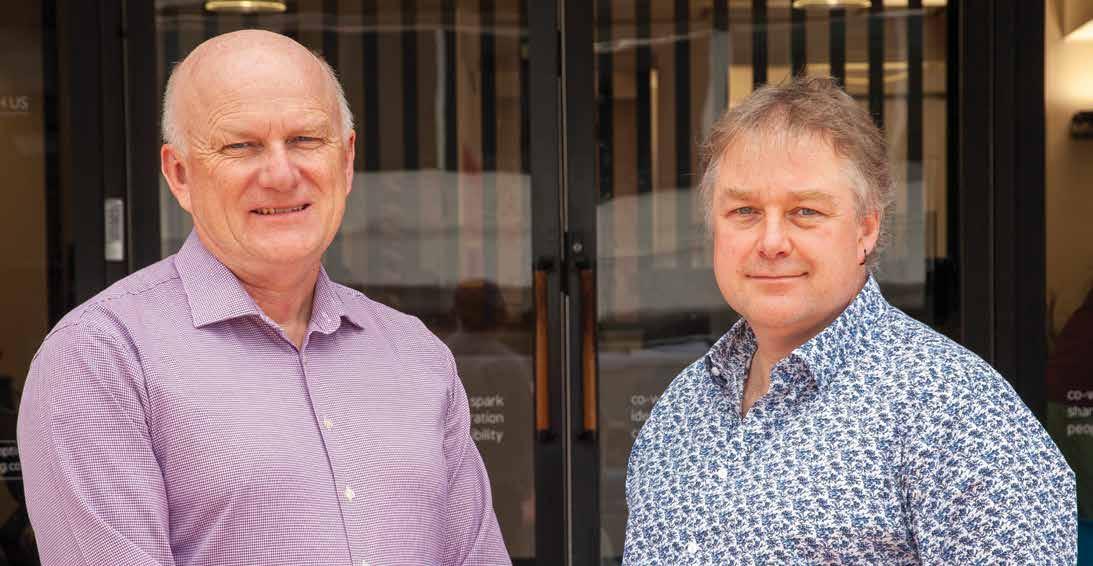
Ian Yule and PlantTech chief executive, Mark Begbie (right)
Some kiwifruit experience a temperature bounce once they enter the coolstore and this has a detrimental impact on the quality of the fruit and increases waste along the supply chain. It is a $100 million per annum problem for Zespri and contributes to climate change from rotting fruit. PlantTech has developed a model that predicts temperature bounces, which Zespri is now incorporating into its IT system to enable prompt action when bounces occur.
Development of tests for water stress and nitrogen deficiency, which use satellite data to monitor at the regional scale down to individual orchard bay resolution, will also benefit orchardists as they become more reliant on off-orchard tools to improve productivity and respond to the challenges of climate change on their orchard. The NZEIR report says there are also macro benefits that PlantTech’s precision agricultural tools provide, which includes helping to meet the challenge of supplying the Asian middle classes with temperate zone fruit (for which demand is expected to double by 2050). Mitigating the worst impacts of climate change and decarbonising orchards and supply chains is another aspect of the institute’s work. To underline the breadth of PlantTech’s scope and to better reflect the growing demand for its services, Mark says the institute has changed its status to a not-for-profit incorporated society. “As we enter a new phase, our focus will be on cementing the capabilities we have established, scaling our capacity to deliver from these, and delivering substantial value while serving a wider and somewhat more diverse demographic,” says Mark. “PlantTech has grown beyond the Bay of Plenty, has moved into new crops, and is working with significant corporates and crown research institutes (CRIs), complementing their strengths with ours and accelerating the transition of technology into commercialisation.
“Quite simply, we exist to help businesses in the primary sector thrive. Not by developing competing products or doing research for research’s sake, but by stretching the innovation goals of the businesses themselves, challenging the industry, delivering tools, research and development, supporting skills increase and practical solutions that are all demand driven and relevant right now,” Mark says. PlantTech is moving away from the traditional curiosity driven, project specific, or field experimentation approach where the results are extrapolated to the rest of the industry, to a more data science driven approach that gathers data and finds practical solutions to commercial problems through research and analysis.
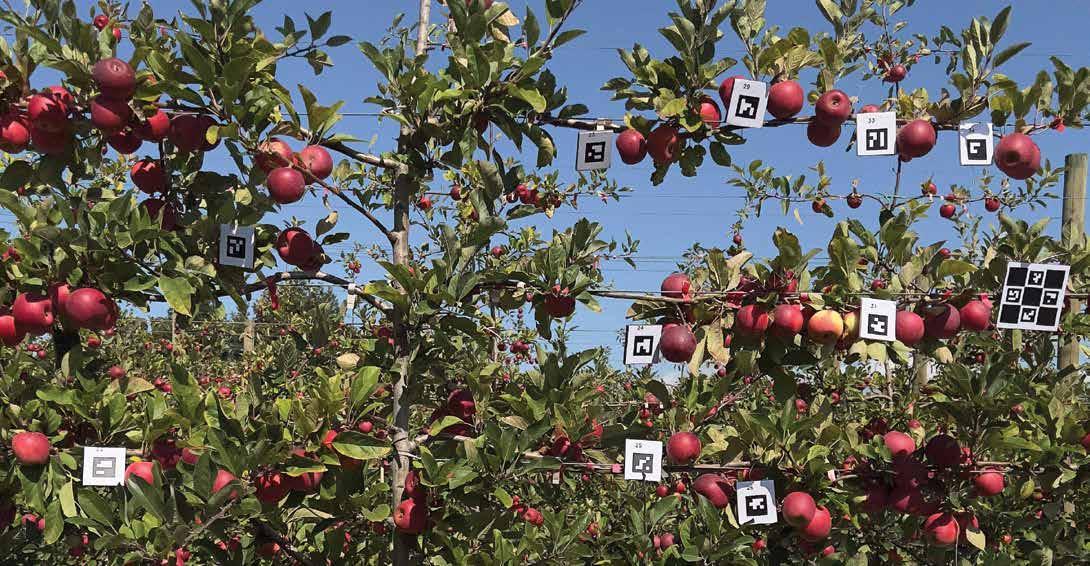
PlantTech's apple crop estimation research uses machine readable codes to assist in large scale data collection
“We differ from other research providers,” says PlantTech research director, Ian Yule. “We are much more closely aligned to industry. Our research agenda is informed by industry, and our goal is to find answers to industry problems. “We have had to work to get our message across about who we are and what we do and why we are different from other groups, and that we are not here to compete with existing structures.” Recent highlights for PlantTech include the opening of a satellite office in Palmerston North so PlantTech’s team of research scientists can be closer to the Manawatu agritech research hub and pipfruit industry. This is already paying dividends as work is underway on a digital apple crop estimation project in Hawke’s Bay, working with Envy, Jazz and Rockit™ apple varieties. Part of the project will assess how effective image-based tools can be in the orchard to find how many apples are in full view of the camera, for example, how many are hidden behind leaves, how many apples can be counted, what is the accuracy of apple size or weight prediction from the images. “Part of PlantTech’s research strategy is keeping ahead of trends to predict and respond to future challenges,” says Plant Tech research scientist and project lead Henry Kirkwood. “This necessitates gathering data from across the industry which can be extracted and analysed to be transferred into different strategies and commercial ready projects.”
PRECISION FARMING = INFORMED DECISIONS = BETTER RESULTS
MYSOIL CLASSIFICATIONTM can identify the following: • Limiting layers • Leaching zones • Drainage depths and directions • Soil types for irrigation decisions • Depths and directions for drainage decisions • Representative soil moisture probe positions, to better manage irrigation zones • Possible cultivation actions to improve crop performance
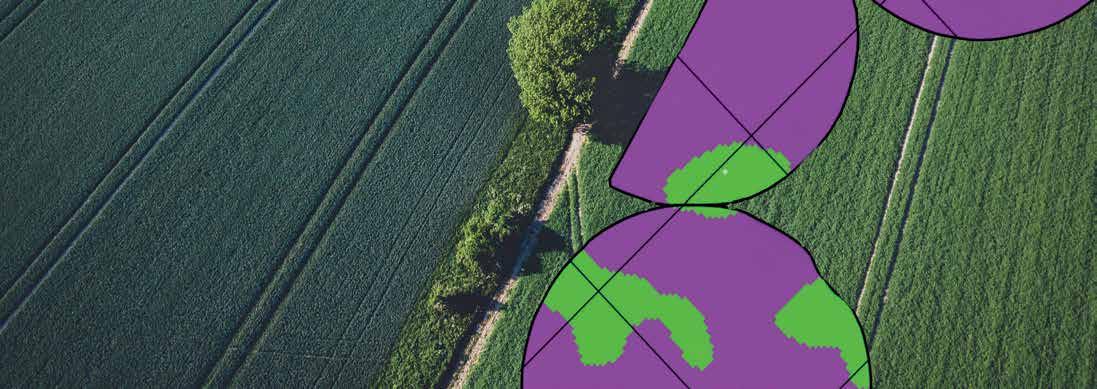
Know your soil’s status, contact your nearest Agri Technovation specialist at 09 954 5411
CROP PERFORMANCE FUELLED BY SCIENCE AND TECHNOLOGY










